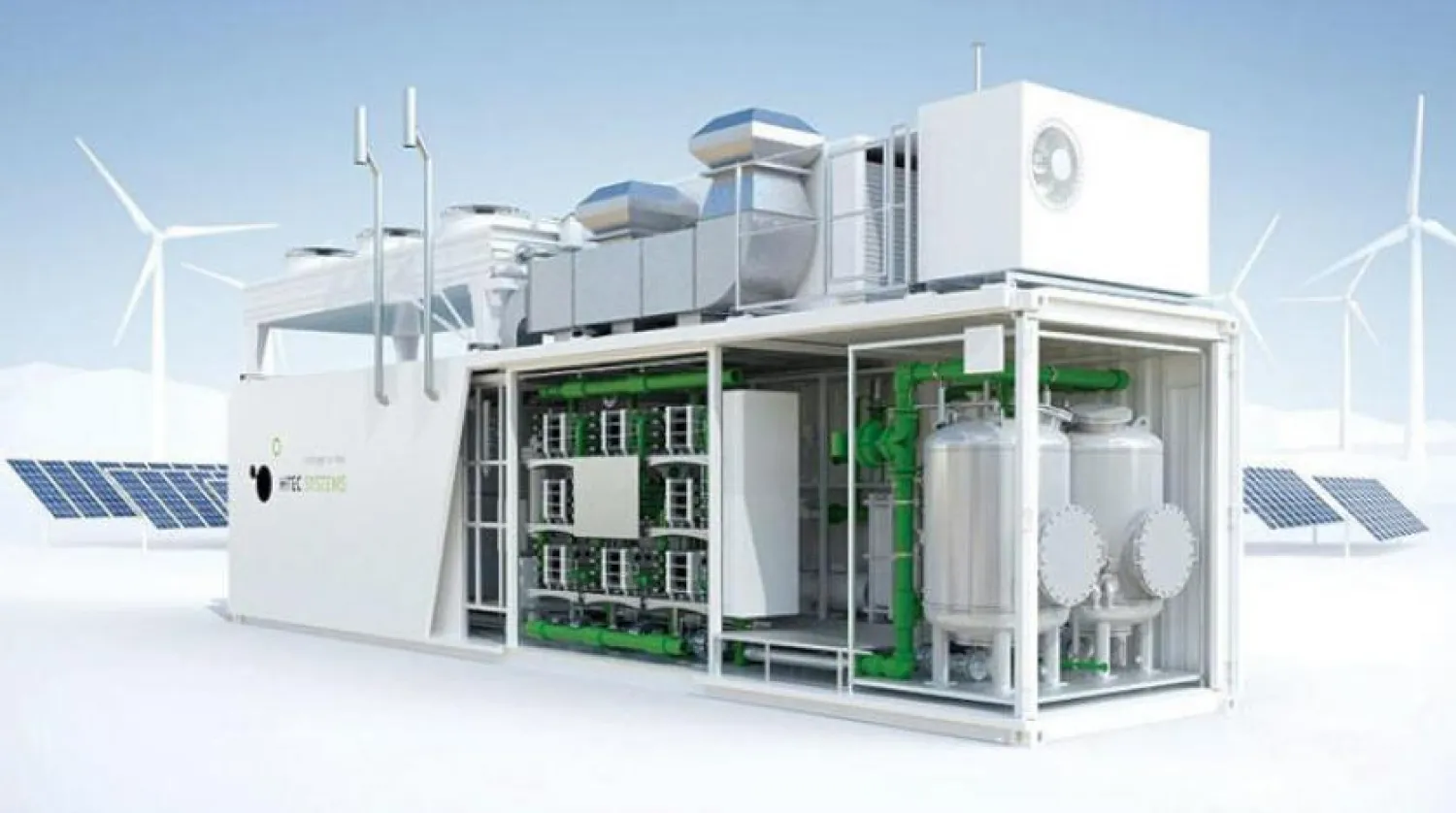Egypt’s private sector is considering boosting green hydrogen production, the clean energy of the future, through its local production and distribution.
MAN Energy Solutions has signed a memorandum of understanding (MoU) with TAQA Power in Cairo regarding a pilot project for the local production of green hydrogen to fuel domestic tourist busses.
The MoU sets the stage for MAN Energy Solutions to provide technical information to TAQA Power on employing electrolysis for a hydrogen-plant solution, due to run until autumn 2022.
MAN Energy Solutions is headquartered in Germany and has about 14,000 employees in more than 120 locations worldwide. Its business is aligned towards a range of solutions for decarbonization.
The company intends to drive the large-scale industrialization of electrolysis, pushing green hydrogen towards the mass market.
It produces stacks and megawatt electrolyzers based on the polymer-electrolyte membrane process (PEM) to cover industry and energy-refiner hydrogen demand. Its electrolyzers already make effective sector-coupling possible today.
TAQA Power Managing Director Samy AbdelKader announced: “We are delighted to join forces with MAN Energy Solutions for such a great endeavor in alignment with the Egyptian Government’s plan aiming to generate and increase the use of green hydrogen.”
He indicated that TAQA intends to lead the private sector to achieve the sustainable development goals set by President Abdul Fattah al-Sisi for Egypt’s Vision 2030.
Head of MAN Energy Solutions’ energy business in the region, Ghassan Saab, described the MoU as an “exciting venture” with a valuable partner in a country that recognized an essential role green hydrogen will play on the path to a climate-neutral, global economy.
It is also an excellent opportunity for MAN Energy Solutions to display its expertise in all processing steps of the hydrogen economy, he added.
“We look forward to working closely with TAQA Power in finding the optimal solution that will position them strongly in what will be one of the most important markets of the future.”
TAQA Electricity manages and operates the Benban solar power plant in Aswan, one of the region’s most significant renewable energy projects. The company established the 65-megawatt plant, with a total investment of $72 million.
TAQA Arabia is a subsidiary of a Qalaa Holdings company that develops and operates energy-distribution infrastructure, including gas transmission and distribution networks, EPC works, power-generation plants, and distribution networks for the oil & gas residential, commercial, and tourism sectors in Egypt.
It also markets petroleum and lubricants and develops and operates water-treatment stations. Currently, it is focusing on significantly increasing green-hydrogen production to expand its remit within the field of clean energy.









